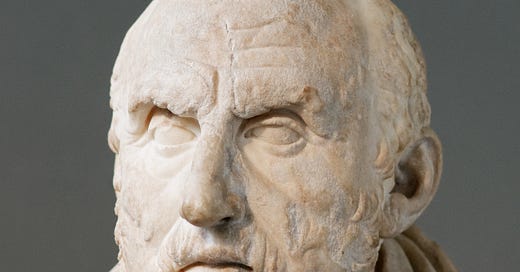Pop culture interest in Stoicism this decade has focused on Stoic Ethics. However, as my past studies concerned Stoic Physics, I was interested in causality, nature, cosmology and fate, as expounded by the ancient Stoics and understood by Byzantine thinkers.
Below I publish for the first time what’s perhaps my oldest poem, written c. 1999, inspired by those philosophical readings. It was probably written before the Byzantine poems of 2000; these were first published last August here, on Mediterranean Poetry. As youthful enthusiasm should not be mistaken for expertise, please consider the work as more an artistic exploration of ideas than an authoritative stamp of didactic rigor.
God is nature is fate is reason (1999)
By Christopher Deliso
There is no accidental motion;
Causes account for and causes create
Fixed things and moving, attest their cohesion;
And so the staunch Stoic dictum.
A rock does not from gravity fall, but
Plunging fulfills its existence. Nature
Has sewn its own secret cause, and knows
To not weave a cylinder.
Yet there is room in this world for other rocks, aware
Of gravitational force, and they fall, having
Learned to resemble less rocks.
There are innumerable worlds, each distinct
From the rest; we know this from Zeno,
Cleanthes, Chrysippus. They posit the cosmos
Repeats, recurs; that time, the measure of motion is like
The line captivating a fish hook, that
Which can be outspun and inreeled again.
There are worlds that collide, and others that merge
And some that resolve into fire;
There are causes for rocks, and reasons for motion,
And a Chrysippus who refutes this doctrine entire;
And yet another ‘Chrysippus,’ name signifying
Only the blade of a knife.





I like “time, the measure of motion is like, The line captivating a fish hook”
It has a nice flow, Chris. And I really liked how you infused Stoic cosmology into this. I’ve always thought their ideas in that regard were quite similar to the Epicureans. Unfortunately, we only have a few fragments to go on. Have you ever looked into Guthrie’s “History of Greek Philosophy”. He doesn’t discuss the Stoics so much, but the way he approaches the Pre-Socratics is really enjoyable and illuminating.